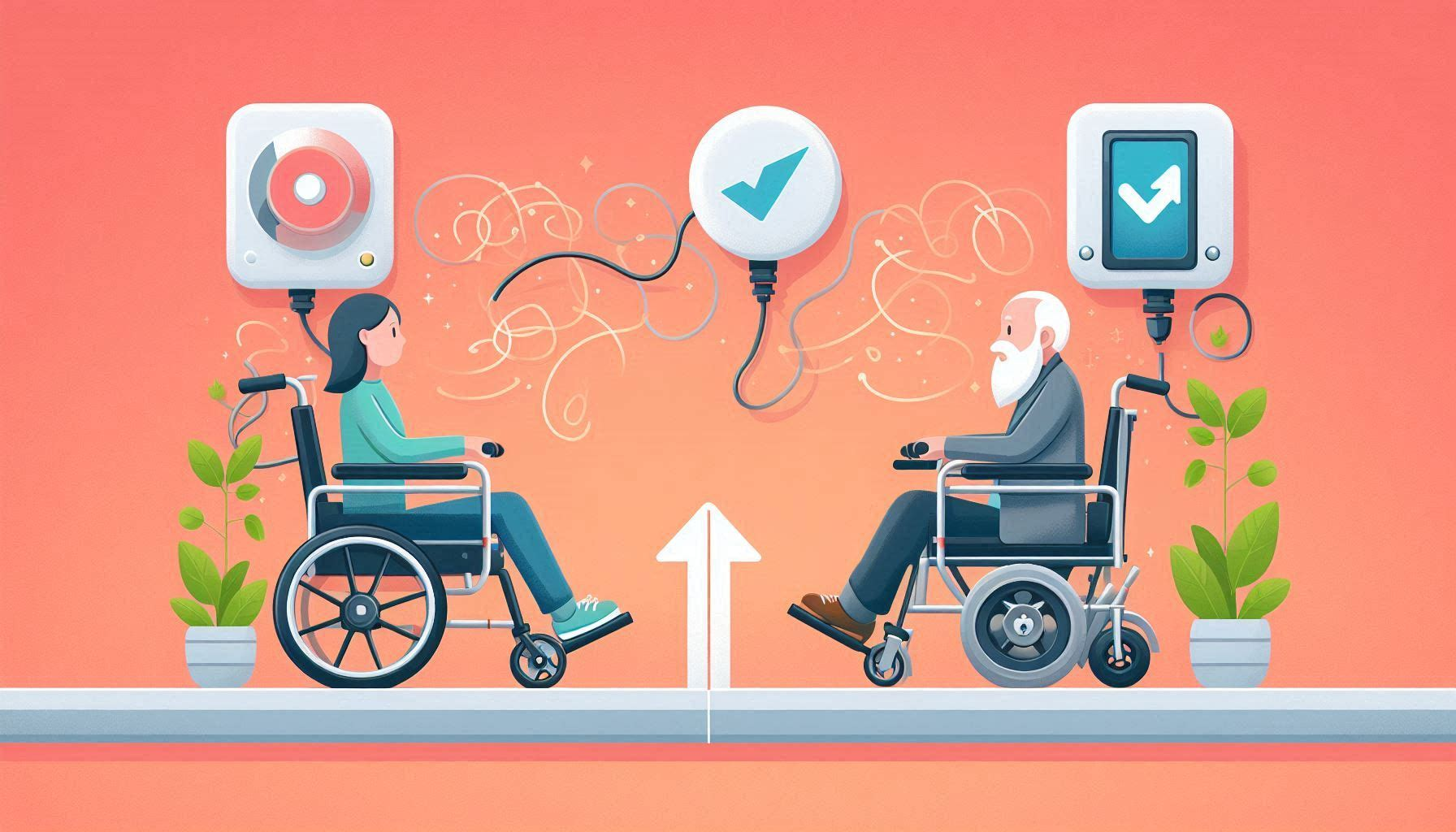When it comes to enhancing mobility for those with physical limitations, wheelchairs play a crucial role. However, the choice between manual and electric wheelchairs isn’t always straightforward. Each type offers distinct advantages and potential drawbacks, making it essential to understand their differences. In this blog, we’ll explore the pros and cons of manual and electric wheelchairs to help you make an informed decision.
Manual Wheelchairs: The Classic Choice
Manual wheelchairs, propelled by the user’s arms or with assistance from a caregiver, have been around for centuries. Their simplicity and reliability make them a popular option for many.
Pros:
- Lightweight and Portable: Manual wheelchairs are typically lighter than their electric counterparts, making them easier to transport and maneuver in tight spaces.
- Lower Cost: With fewer components, manual wheelchairs are generally less expensive to purchase and maintain.
- Exercise Opportunity: Propelling a manual wheelchair provides upper body exercise, which can help maintain strength and cardiovascular health.
- No Charging Required: Unlike electric wheelchairs, manual models don’t need to be charged, eliminating concerns about battery life.
Cons:
- Physical Exertion: Users need significant upper body strength and stamina to propel themselves, which can be challenging for some individuals.
- Limited Range: The distance a user can travel is directly related to their physical capabilities, potentially limiting independence.
- Repetitive Strain: The repeated motion of propelling a manual wheelchair can lead to shoulder and wrist injuries over time.
Electric Wheelchairs: Power at Your Fingertips
Electric wheelchairs, also known as power wheelchairs, use a motor and battery to move. They offer increased independence for those with limited upper body strength or stamina.
Pros:
- Increased Independence: Users can travel longer distances with less physical exertion, expanding their range of activities.
- Easier Navigation: Power assist makes it easier to navigate inclines, rough terrain, and long distances.
- Customizable Controls: Various control options (joystick, head controls, sip-and-puff systems) can accommodate different physical abilities.
- Additional Features: Many electric wheelchairs offer adjustable seating positions, elevated leg rests, and other comfort features.
Cons:
- Higher Cost: Electric wheelchairs are generally more expensive to purchase and maintain due to their complex components.
- Heavier and Bulkier: The motor and battery add significant weight, making transportation and storage more challenging.
- Battery Dependence: Users need to plan around battery life and ensure regular charging.
- Potential for Breakdowns: More complex mechanics mean a higher likelihood of technical issues requiring professional repair.
Making the Right Choice
Deciding between a manual and electric wheelchair depends on various factors:
- Physical Ability: Consider your upper body strength and stamina. If you have limited arm strength, an electric wheelchair might be more suitable.
- Lifestyle and Environment: Think about where you’ll use the wheelchair most. For indoor use in small spaces, a manual wheelchair might be more practical. For outdoor use or longer distances, an electric wheelchair could be beneficial.
- Transportation Needs: If you frequently need to transport your wheelchair in a vehicle, a lighter manual chair might be easier to manage.
- Budget: Factor in not just the initial cost, but also long-term maintenance expenses.
- Personal Preferences: Some users prefer the exercise and simplicity of manual wheelchairs, while others value the independence and features of electric models.
It’s worth noting that some wheelchairs offer the best of both worlds. Power-assist devices can be added to manual wheelchairs, providing extra help when needed without the full weight and complexity of an electric wheelchair.
Ultimately, the choice between a manual and electric wheelchair is a personal one. It’s often helpful to consult with healthcare professionals, try out different models, and consider your daily activities and long-term needs. Remember, the right wheelchair can significantly enhance your mobility, independence, and quality of life.
Whether you choose a manual or electric wheelchair, the most important factor is that it meets your needs and helps you navigate your world with confidence and comfort.






